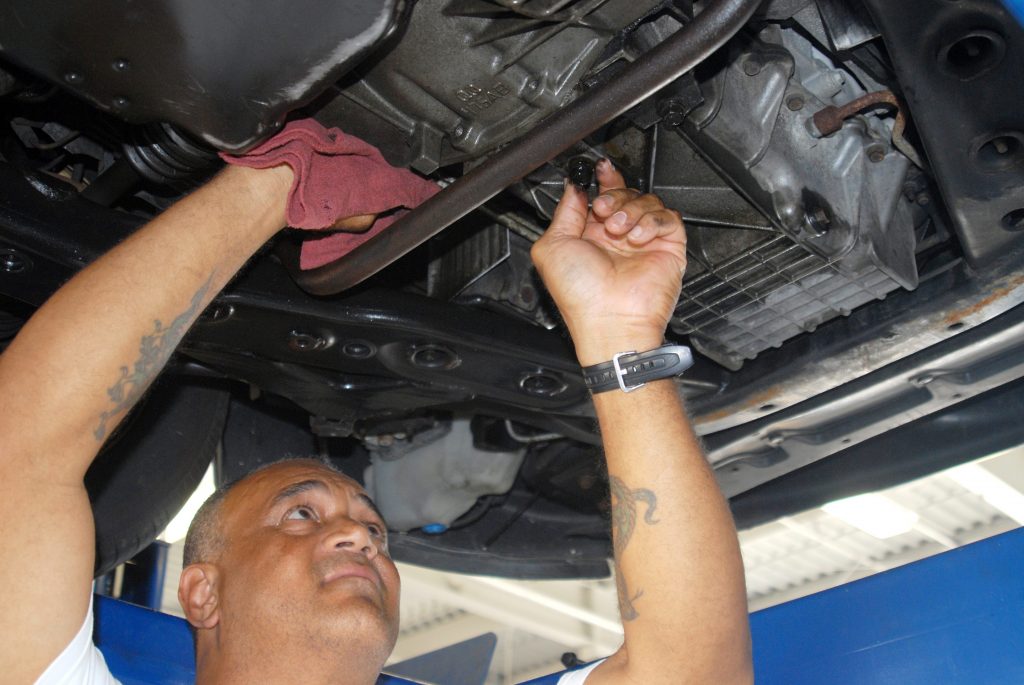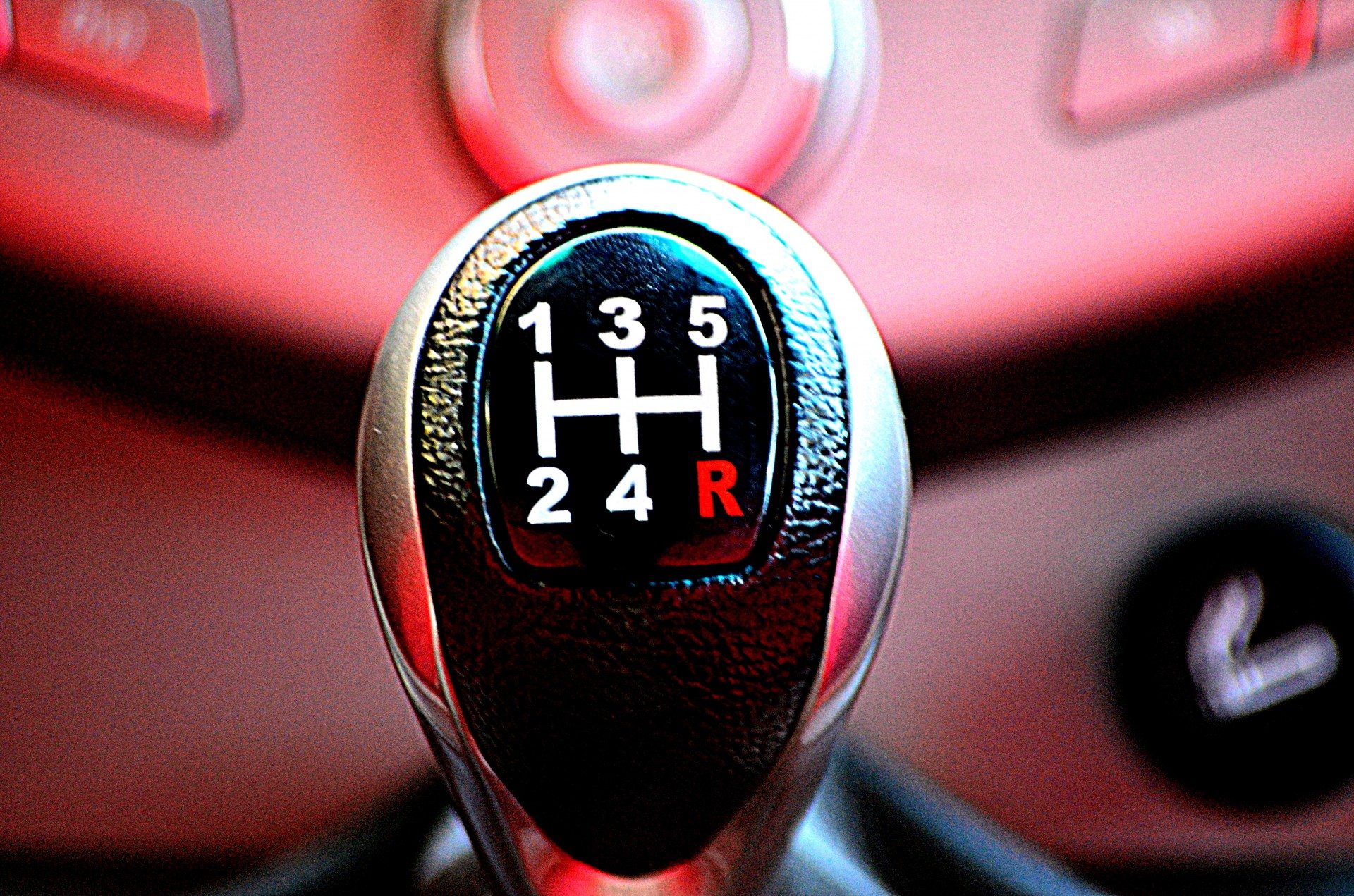Problems with your cars transmission can be worrying and hard to pin point the exact cause. Diagnosing a manual or automatic gearbox problem may seem an impossible task but the most important thing is to fix it before the problem escalates.
A cars transmission controls the power from the engine to the driveshaft, which is under constant stress from friction and heat from all the moving components. As you can imagine, a broken transmission will leave you stranded at the side of the road and of course, an expensive repair bill.
For car owners that do not properly maintain their car with regular servicing or misuse the transmission will suffer from transmission problems frequently.
Below are symptoms that your car transmission is broken and needs to be repaired.
Table of Contents
Burning Transmission Fluid Smell
A burning smell coming from your car is never good news and certainly not burning transmission fluid. The purpose of the fluid is to ensure the transmission components are kept lubricated and cool in order to reduce wear and tear.
If the fluid is burning, the friction will increase and the introduction of sludge and debris be apparent from within the transmission. This will increase the likelihood of damage to the vital transmission components.
The causes of burning transmission fluid is due to a low level due to a leak or incorrect service and the wrong transmission fluid used. Burned transmission fluid will usually be a dark color as opposed to a cherry red. You can check the color of the fluid using a specifically designed dipstick that will give you the answer.
For the average car, you are meant to change the transmission fluid between 30,000 to 50,000 miles. This is less frequent than changing the motor oil in your car. This being said, you should spend that little extra on high quality transmission fluid to give your car a healthy bit of life.
Refusing To Get Into Gear
Many people may think a manual transmission car will always get into gear. Wrong, manual transmissions can refuse to get into gear (mostly first or reverse gear) for a number of reasons. The causes of this are usually due to the clutch linkage or shift cables requiring adjustment, low transmission fluid or wrong fluid has been used.
Automatic transmission can refuse to go into gear for the same reasons as above but also because of electrical problems. Examples are the brake light switch, gear selector issue or limp modes. In some vehicles, if the car will not get out of park gear, there will be a “special” key slot that you can push down to release the park gear.

Transmission or Gearbox Noisy In Neutral
For manual transmission cars, if you let go of the clutch in neutral, is your transmission making a humming/buzzing noise? This is a kind way of your car telling you it needs to be fixed and is usually a minor problem.
Worst case, the gears or bearing have become worn from extended use or there is damage to gear teeth. However, more commonly the fluid level is low or the wrong fluid type has been poured into the transmission.
Transmission is Slipping
Gear changes are determined by calculations involving the RPM within an automatic and a manual is when it is initiated by the driver. When a car decides to slip during gear changes, the shift in power can cause much irritation and can cause the car to be unpredictable.
The first cause of gear changes slipping is simply worn transmission components. This will be noticeable in higher mileage cars or cars that have been neglected with poor transmission servicing. An important note to prolong the life of the transmission is to drive gently whilst the car is cold because the fluid works its magic best when up to temperature.
The second reason for gear changes to feel like they are slipping is because of poor fluid pressure. This can be caused by 3 reasons that are clogged transmission filters, low fluid and bad fluid pump.
If you are looking for a quick fix, we highly recommend using an additive for slipping transmissions. The purpose of these additives is to restore the fluid back to its original state, which may solve the issue you are dealing with.
Dragging Clutch
Most common when the car is hot and of course when driving a manual transmission car. A dragging clutch is where the clutch remains engaged and spins along with the engine that is often met with the dreaded grinding noise.
The most common cause is too much free travel in the clutch pedal. The clutch disk cannot disengage from the flywheel because the cable or linkage has little leverage. It can also be caused from the linkage being loose or disconnected.
Other less common causes are that the clutch housing or transmission has been misaligned. Check for loose bolts or debris between the mounting face and reconnect.
Hesitation Upon Gear Change
This will be noticeable in both manual and automatic transmissions. When changing gears in a manual and notice the RPM raising but the car not moving as fast as it should, this could suggest a worn out clutch or bad transmission problems.
An automatic transmission car will have very similar but additional problems to add some more pain. When using the gear selector from “Park” to “Drive”, there may be a delay. Another additional problem could be the gear changes flaring whilst changing.
Constant Whining or Clunking Noise From Transmission
This common symptom can be spotted by the majority of car owners but often gets mistaken. A differential will give a constant whine similar to a transmission whine when accelerating, so its important to check both to diagnose the noise.
The whining is a bad noise and will gradually get louder whilst not fixed. You may be luckily with a fluid change and an inspection for worn gearbox components but that is not always the case.
Whilst shifting gear in a manual or the automatic gearbox changing gears and notice a clunk noise it can be quite worrying. However, the most common cause of this is the CV joint (and maybe the differential).
The clunking will get harder until eventually the CV Joint explodes. From personally experience, this is a very loud bang followed with metal pieces sheering off.
Limp Mode and Engine Management Lights
The purpose of limp mode is to get you to a safe location without causing further damage to the engine or transmission. For this reason, you may notice the car is stuck in one gear or not revving over a certain RPM. You will want to put the vehicle on an error code scanner to diagnose the issues before taking the car to an expensive mechanic.
An engine management light may also communicate with the cars ECU to limit the amount of power or gear changes to the transmission.
When To Change Transmission Fluid
The transmission fluid doesn’t need to be changed as often as your motor oil but it is a fluid that must be changed during certain intervals. Below are the approximations of when your car is required to have a transmission fluid change:
- Manual Transmission – 30,000 to 60,000 miles
- Automatic Transmission – 60,000 to 100,000 miles
Some car manufacturers even claim that you will never have to change the transmission fluid of your car. However, there is no harm in changing the transmission fluid of your car and if you are buying second hand, it is highly recommended to do so if you are buying with limited service history.
Too Much Transmission Fluid
Too much transmission fluid is a common mistake made my many people that are serving their transmission. It can result in foaming inside the transmission, which means the fluid will not flow easily thus not cooling or providing lubrication.
It can also cause compression issues between gears and cause very expensive damage the transmission. Its vital that you ensure the fluid is as accurate as possible

